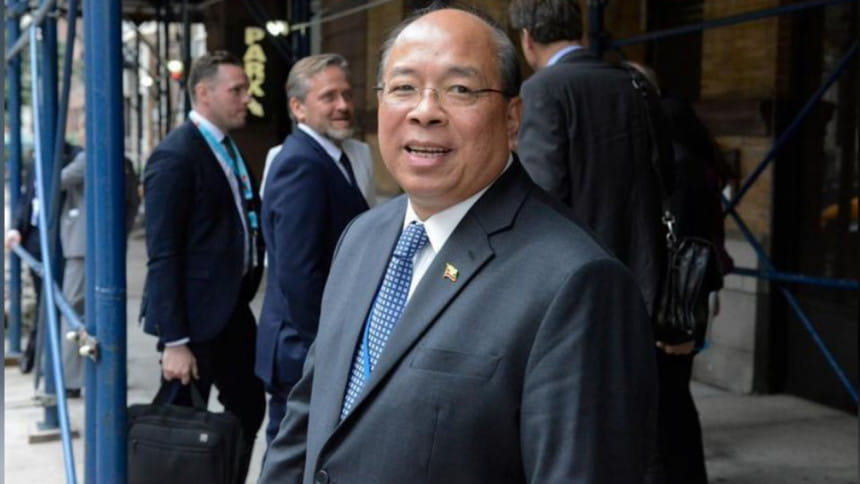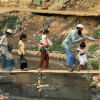Myanmar wants 'clear evidence' of genocide

Myanmar wants to see clear evidence to support accusations that ethnic cleansing or genocide has been perpetrated against its Muslim minority in Rakhine state, National Security Adviser Thaung Tun said on Thursday.
"The vast majority of the Muslim community that was living in Rakhine remain," he told reporters in Geneva. "If it was a genocide, they would all be driven out."
Nearly 700,000 Rohingya have fled Rakhine into neighboring Bangladesh since insurgent attacks sparked a security crackdown in August, joining 200,000 refugees from a previous exodus.
On Wednesday, UN human rights chief Zeid Ra'ad al-Hussein said he strongly suspected "acts of genocide", while Myanmar's military published a lengthy response to widespread allegations over its campaign in Rakhine, saying its investigations had cleared troops of almost all alleged abuses.
Zeid told the UN Human Rights Council that reports of bulldozing of alleged mass graves were a "deliberate attempt by the authorities to destroy evidence of potential international crimes, including possible crimes against humanity".
Thaung Tun said charges of ethnic cleansing and genocide were very serious and should not be bandied about lightly.
"We have often heard many accusations that there is ethnic cleansing or even genocide in Myanmar. And I've said it before and I'll say it again – it is not the policy of the government, and this we can assure you. Although there are accusations, we would like to have clear evidence," he said.
"We should look into that before making a pronouncement on whether there is ethnic cleansing or genocide."
Myanmar has not allowed UN investigators into the country to investigate. A UN fact-finding mission is due to report on Monday on its initial findings, based on interviews with victims and survivors in Bangladesh and other countries.
Thaung Tun added that Myanmar was willing to accept back people who had fled and provide safety and dignity for them, showing that it did not want them out of the country, and that only a minority of Rakhine's population of 3 million had left.
He said the Muslims who fled largely did so because the Arakan Rohingya Salvation Army (ARSA) armed group had sowed fear. He accused ARSA of having forced villagers to join their attacks on the security forces and had insisted on a scorched earth policy, burning villages in retreat.
Rohingya trace their presence in Rakhine back centuries. But most people in majority-Buddhist Myanmar consider them to be unwanted Muslim immigrants from Bangladesh. The army refers to the Rohingya as "Bengalis," and most lack citizenship.
Thaung Tun said former residents would be welcomed back if they were willing to "participate in the life of the nation", for example by learning the Burmese language.
"Those who want to become citizens of Myanmar, we are happy to welcome them, but they have to go through a process. There cannot be automatic citizenship," he said.

 For all latest news, follow The Daily Star's Google News channel.
For all latest news, follow The Daily Star's Google News channel. 








Comments